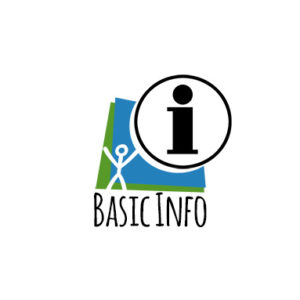
 Job Title:
Job Title:
Full-Time Live-In Volunteer
In One Sentence Describe Your Work Role
Volunteers exchange 25 hours work for food and a bed.
Number Of Years Dedicated To This Field Of Work or Lifestyle:
4
Category Of Work:
Voluntary – Non Charity
Country / Area of Work:
United Kingdom
Industry:
Non-Profit/Volunteer
Type:
Voluntary Work
![]()
Key Skills For The Job:
* Physical fitness: Most jobs involve manual labour.
* Following instructions: Tasks will be unfamiliar and often one-off so you won’t be able to practise.
* Consideration for others: Your workplace is someone’s home.
Vital Key Skill:
Any trade skill such as plumbing or carpentry.
Your Personal Experience Of Entering This Role:
Higher Education Level
Tips For Undertaking This Work:
* Take out volunteer insurance in case you are injured, and travel insurance for possessions.
* Have plenty of emergency money to spend a couple of weeks at a hostel if you find yourself without a host.
* Try to learn a few new skills thoroughly which you can then offer to future hosts, else you may grow bored of labour.
Future Progression Or Developments:
* If you impress a host, they may refer you to private hosts that aren’t listed on the websites.
* Volunteer work can provide experience for paid gardening or caretaking jobs.
* You may wish to volunteer on a larger scale with disaster relief or humanitarian aid organisations.
![]()
* Hosts and volunteers connect via volunteering websites such as Workaway, which operate a lot like dating websites.
* First I volunteered locally, which let me test my backpack contents.
* Then I did several diverse one-week placements, to see what I did and didn’t like and was good at.
* Then I did longer placements at larger hosts such as communities, which enable experimentation due to the flexibility provided by a greater number of volunteers.
* Be totally honest, don’t try to appeal to the 80% of places that you’re a bad match for just because they’re in a convenient location or the work sounds easy.
![]()
What Are The ‘tools of the trade’ Used Daily:
It will vary greatly with the job, but often:
* Gardening tools: digging, pruning
* Carpentry tools: sawing, drilling
* Decorating tools: painting, plastering
* Construction tools: cementing, insulating.
A Typical Day’s Duties:
* Volunteers move in with a host family and work 25 hours per week in exchange for food and a bed, no payment.
* Host projects are personal, non-profit, and could be anything:
– Building or renovating a house
– Harvesting the season’s fruit
– Teaching English to children, or other skills like Online Marketing to adults
– Childcare, or helping elderly hosts with chores
Is Travelling A Regularly Part Of This Work:
Yes
Weekly Working Hours:
Part Time
Type Of Hours Arrangement:
Flexible Based On Employers Needs
![]()
The Best Thing About The Work You Do:
* Living with a family in a non-tourist destination provides an authentic, intimate experience that you can’t get from being a tourist at a hostel
* You know that your work is relevant, and 100% of your effort goes directly to the host
* You receive direct feedback and appreciation
Your Least Favorite Thing About The Work You Do:
* Repetative manual labour can become unstimulating
* Living with your boss can make it difficult to relax or vent frustrations
* With no commute, and your host doing the shopping, venturing outside after a hard day requires other motivation
* Being provided a room, meals, and tasks can make you feel like a child again
* Many hosts disapprove of internet/device usage, preferring you to take advantage of local activities
Any Duties You Hadn’t Anticipated Prior To Undertaking The Work:
Dog walking: Since you’ll often be exploring the countryside, it makes sense to take the dog with you.
![]()
The Top Perks Of The Work:
(See “The Best Thing About The Work You Do”.)
![]()
Where People Can Visit For More Details On Your Work:
https://www.workaway.info/


